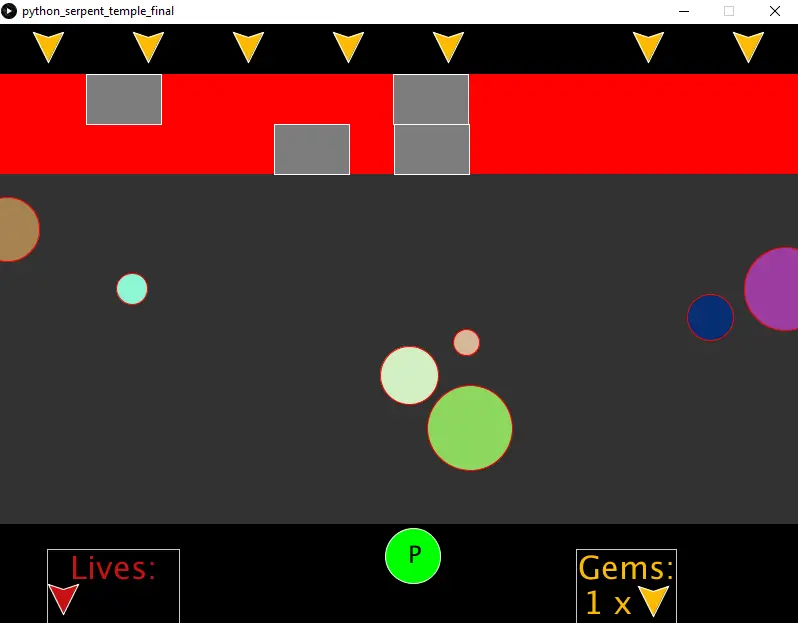
The core concepts courses provide a unique challenge tailored to a student’s programming ability. Students will be challenged through multiple mini projects that specialize on fundamental concepts all programming languages share. Students then will apply all the concepts they learn into developing a project of their own design that they can carry forward to work on beyond the course.
The tools of the Core Concepts courses involve the Processing program using the Java or Python programming language modes.
Our Beginner and Beginner+ classes feature an introduction to Processing and specifically programming in Java and Python. These are perfectly suited for students comfortable with the computer and new at programming or for our introductory graduates. These programs are made from scratch by the students and the students are only provided the images and sounds created for RP4K (though all students are also encouraged to create their own resources to use in the program if they wish).
Our Beginner Computer Programming Courses feature:
Serpent Temple (Python Processing) features a brave mouse searching for the ultimate lost cheese. The mouse must avoid snakes, traps, boulders, and various other hazards while riding alligators to reach the prized treasure. This is a Beginner-level course, designed as an exploratory introduction to coding at each student’s pace.

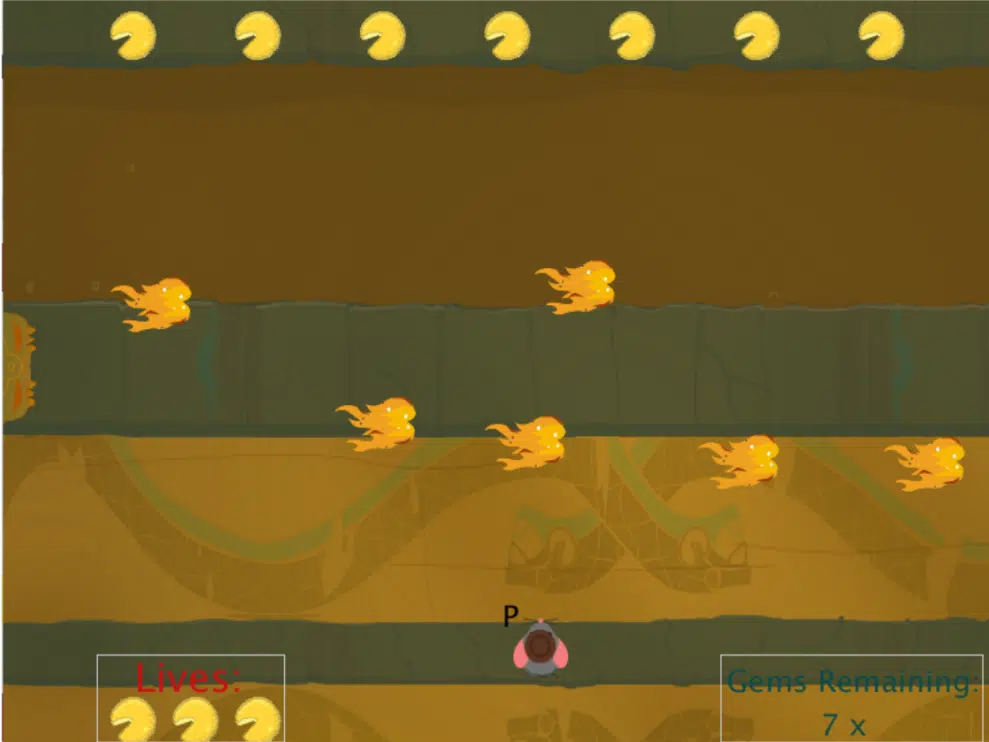
RP4K instructors will begin by using regular shapes for all objects in the game, with customization being used to discover sprites and pictures. This allows us to work on coding skills without relying on computing ability like file-folder navigation, file-paths, and other distractions that take children away from mathematical applications of coding. By focusing purely on shapes, we can actually demonstrate what sprites (or pictures for characters) do underneath the visuals to perform like a game.
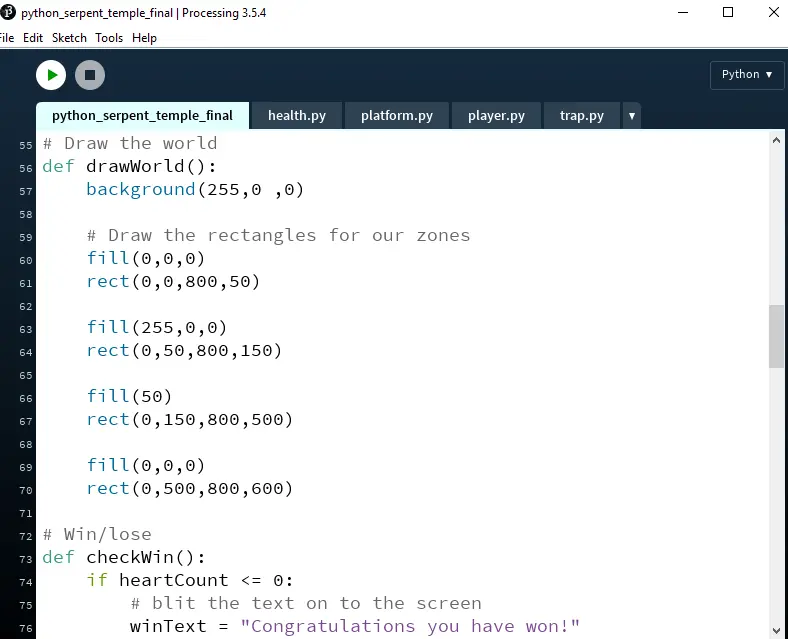
This course uses real Python code, with the help of the Python Processing reference material we will discover how to work with existing code features, while learning to make our own! This course is comprehensive and introduces Pythagorean theorem in a subtle way, and explores collisions between different kinds of shapes as well! Students taking this course in a 1-week summer camp or 18-week course should be able to complete our base material, plus experiment with customization with previous coding experience. Factors that can affect pacing include typing skills, communication skills, and interpersonal skills.
Enjoy learning fun coding concepts with the help of instructors at a pace based on each individual student.
Pizza Bandit (Java Processing) features a raccoon named Reggie who is trying to get all of the pizza spread around Pizzaville before animal control gets a hold of him with their robotic cages. Join Reggie and others such as Cheeky Pete and Suzie Coo as they navigate the streets filled with Pizza!
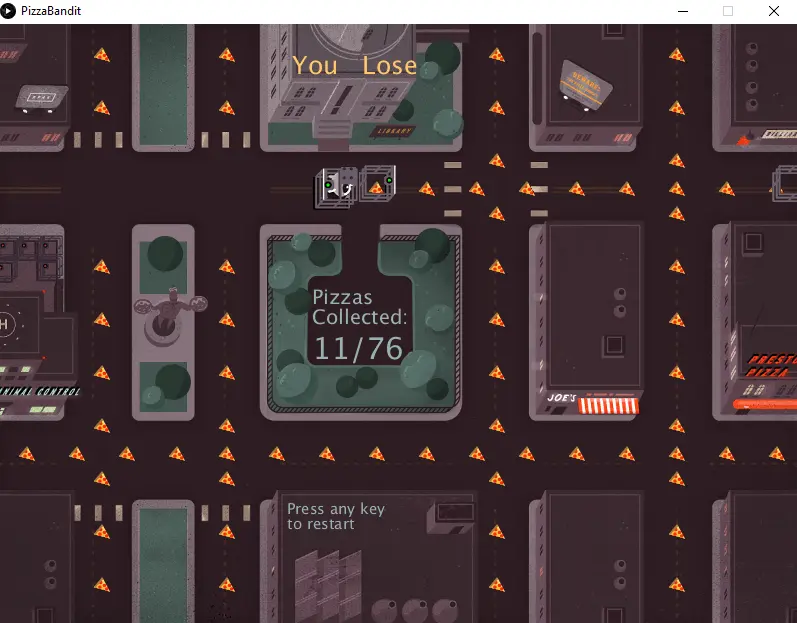
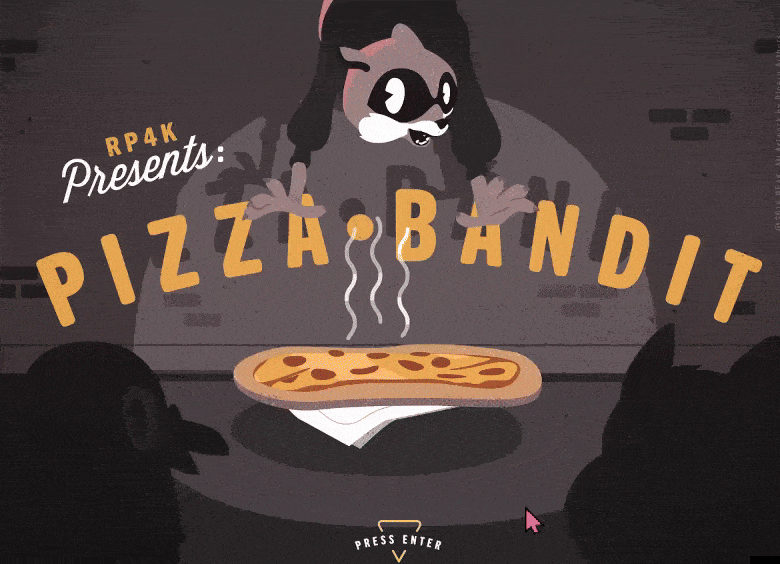
This course introduces sprites as part of the base game, with basic animation demonstrated for multiple objects in the game. Students explore creating a classic arcade game while introducing their own unique ideas through customization. Explore Java Programming from the ground up with the help of Java Processing,
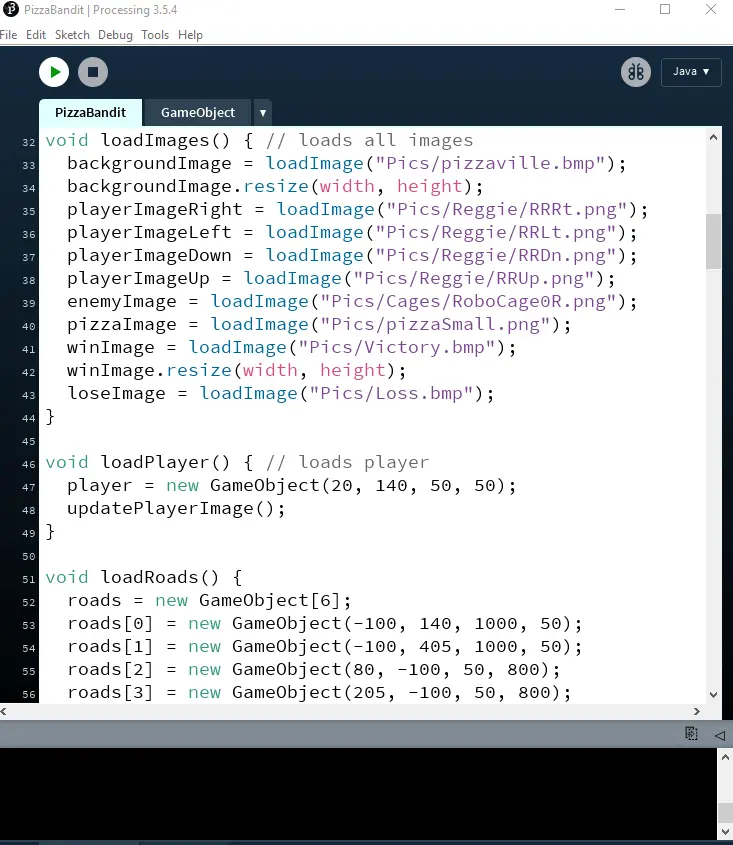
Students in Java Pizza Bandit will be introduced to variables, objects, classes, loops, and key events to create effects of animation. Utilize the full power of Processing with Java in this beginner level course!
Students will be challenged to create their own version of the game “Sheep Herder” over the course of 18 weeks or in a shorter twice weekly program. Sheep Herder is about a shepherd who is trying to avoid getting his flock abducted by aliens! Using the mouse and your wits, carefully dodge the UFO’s for as long as you can, perhaps until you as the programmer find a way to code in the ability to fight back! Sheep Herder uses the Processing environment found at processing.org and utilizes the Java programming language.

Swim Upstream and Code Your Own Adventure!
In UpStream, students take on the challenge of creating their own version of this exciting arcade-style game over 18 weeks or as part of a summer camp. The game follows Fin the fish as they navigate a rushing river, dodging rocks and larger fish while chasing high scores. Fin can eat smaller fish to gain points, but be careful—not only does Fin grow bigger, but the game speeds up as time goes on!
This course is designed to be highly customizable, allowing students to expand and modify their game as they build their programming experience. By the end of the course, students will have created a fully playable game while developing problem-solving skills, computational thinking, and coding confidence.
Students will use Processing (Python Mode), an intuitive tool that helps beginners learn programming through visual and interactive experiences.
Throughout the UpStream course, students will explore a range of essential programming concepts while building their own game. They’ll start by working with functions, learning how to define and call them to set up the game screen. Along the way, they’ll use variables to manage game data, control movement, and replace hard-coded values for more flexible programming.
As they develop Fin’s adventure, students will implement conditional statements to manage game logic, like preventing the character from swimming off-screen or detecting when Fin eats a smaller fish. They’ll also handle key events, allowing the player to control Fin’s movements smoothly. Lists and loops will come into play as students program obstacles, ensuring they appear, move, and disappear at the right moments.
To create a fully functional game, students will develop game mechanics, such as adjusting the scroll speed and tracking Fin’s size as they eat. A heads-up display (HUD) will be implemented to show the player’s score and remaining lives, while a main menu will allow players to start, restart, or exit the game. As part of making the experience more engaging, they’ll add an invincibility mechanic after Fin takes damage, preventing immediate consecutive hits.
Beyond basic programming, students will also be introduced to object-oriented programming (OOP). They’ll create and structure classes to represent the player, enemies, and obstacles, gaining an understanding of constructors, class variables, and object instantiation.
Finally, students will dive into mathematical logic, applying concepts like circle collision detection to determine when Fin collides with objects. Through these challenges, students will not only gain practical coding skills but also develop problem-solving abilities that extend beyond the classroom.
This course isn’t just about coding—it’s about problem-solving, creativity, and having fun while learning to think like a programmer. Whether your child is curious about coding, math, or game development, UpStream provides a supportive and engaging way to explore programming while building a game from scratch.Ready to take the plunge? Join the UpStream course today and start coding!
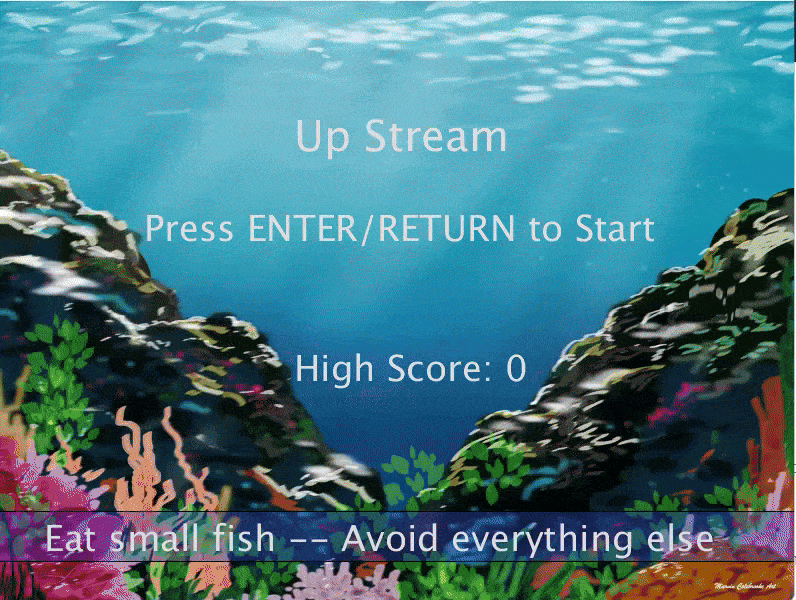
In these courses, students learn and apply IF statements, variables, arrays, parameters, objects, functions, and loops to solve challenging programming puzzles like animation, chasing and collision detection. In addition, students also learn fundamental math concepts such as coordinates (x and y value), inversion, inequalities and absolute values.
Students at the Beginner level should now be familiar with numbers, and should quickly be able to grasp the concepts of coordinates. Our Beginner courses utilize problem solving through application to learn how integer mathematics can be used to move objects on the screen, and explore beyond.
Our Beginner Level Courses are taught by leading local teachers with many years’ experience in the education and programming fields. We work to create the ideal comfortable learning environment for young children as they hone their understanding of programming and become more confident in their use of computers.
To discover more about our Beginner course and our full range of computer programming courses, please contact our team today.